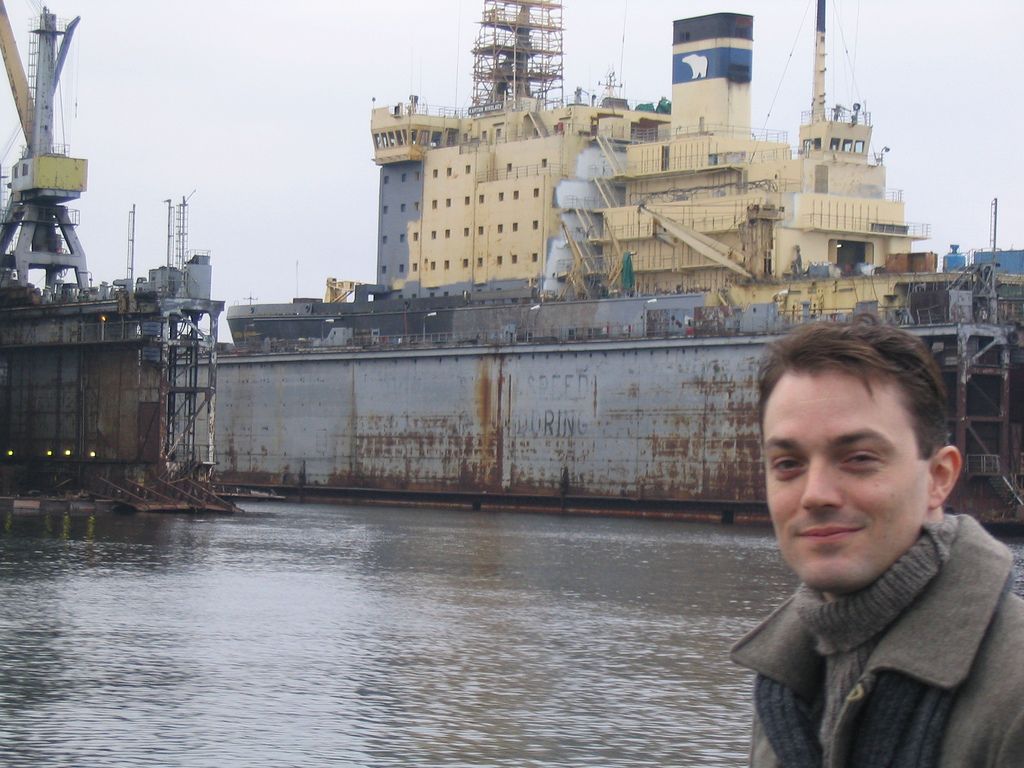
Former Secretariat employee Scott Forrest is returning to the UArctic family to oversee the development of an engaging new project, the UArctic Atlas. The Atlas project will bring together a consortium of key holders of mappable data to integrate information about the region with an easy-to-use online map viewing tool.
To start, the UArctic Atlas will focus on aggregating currently available data sets and building on commonly used web mapping applications such as Google Earth. UArctic itself will be a major contributor to the project's holdings, as the Membership Survey is being put to good use to create new layers of geographic data about higher education in the North. For instance, the student size of our higher education members could be combined in a single map view with population density and transportation routes in the region. Initial support for the UArctic Atlas has come from Canada's
Department of Indian Affairs and Northern Development (DIAND) and StatoilHydro. Members will have an opportunity to learn more about the project, and how they might contribute to its success, when the UArctic Atlas is presented at the upcoming Council meeting in Edmonton.
After returning to work on his own research in International Relations at the Arctic Centre, University of Lapland in 2004, Scott is relishing the opportunity to work with UArctic again and renew old

acquaintances and partnerships. During this time, Scott has also served as the Academic Coordinator of the Arctic Studies Program, the University of Lapland's multidisciplinary international education program that delivers the Circumpolar Studies curriculum. Since coming to Lapland as an exchange student from the University of Northern British Columbia in 1997, Scott has been actively involved in the development of UArctic, working as Information Manager at the Secretariat from 1999 to 2004. Scott will be putting this knowledge and experience to work to bring the UArctic Atlas project to life.
 acquaintances and partnerships. During this time, Scott has also served as the Academic Coordinator of the Arctic Studies Program, the University of Lapland's multidisciplinary international education program that delivers the Circumpolar Studies curriculum. Since coming to Lapland as an exchange student from the University of Northern British Columbia in 1997, Scott has been actively involved in the development of UArctic, working as Information Manager at the Secretariat from 1999 to 2004. Scott will be putting this knowledge and experience to work to bring the UArctic Atlas project to life.
acquaintances and partnerships. During this time, Scott has also served as the Academic Coordinator of the Arctic Studies Program, the University of Lapland's multidisciplinary international education program that delivers the Circumpolar Studies curriculum. Since coming to Lapland as an exchange student from the University of Northern British Columbia in 1997, Scott has been actively involved in the development of UArctic, working as Information Manager at the Secretariat from 1999 to 2004. Scott will be putting this knowledge and experience to work to bring the UArctic Atlas project to life.
 Former Secretariat employee Scott Forrest is returning to the UArctic family to oversee the development of an engaging new project, the UArctic Atlas. The Atlas project will bring together a consortium of key holders of mappable data to integrate information about the region with an easy-to-use online map viewing tool.
Former Secretariat employee Scott Forrest is returning to the UArctic family to oversee the development of an engaging new project, the UArctic Atlas. The Atlas project will bring together a consortium of key holders of mappable data to integrate information about the region with an easy-to-use online map viewing tool.